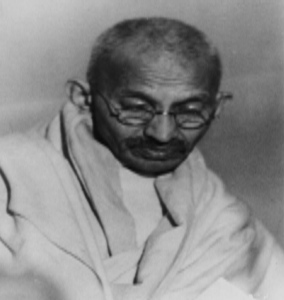“It may be long before the law of love will be
recognized in international affairs. The machineries of government stand
between and hide the hearts of one people from those of another.”
Gandhi couldn’t have said it better himself. And he
didn’t have to. They’re his words, which the Indian state of Gujarat and other
states would do well to live by as they indulge in collective handwringing
about banning Great Soul, a new biography that reveals the Mahatma’s
relationship with another man in South Africa in the early 20th century.
In Great Soul, Pulitzer Prize-winning author Joseph
Lelyveld quotes the content of letters between Gandhi and German-Jewish
architect Hermann Kallenbach who once shared a home together in South Africa,
where they worked on the non-violent human rights struggle there.
In an April 7 email blast, UK gay rights activist Peter
Tatchell excerpted some of the loving language Gandhi penned to Kallenbach:
“Your portrait (the only one) stands on my
mantelpiece in my bedroom,” Gandhi wrote. “The mantelpiece is
opposite to the bed.”
He added: “How completely you have taken possession
of my body. This is slavery with a vengeance.”

Gandhi asked Hermann to promise not to “look
lustfully upon any woman.” The two men pledged “more love, and yet
more love… (such as) the world has not yet seen.”
As critics of the revelations carp about the
“insult” to the Mahatma’s memory and the whole Indian nation,
Gandhi’s great grandson Tushar Gandhi sought to introduce some sanity into the
faux-controversy.
“How does it matter if the Mahatma was straight, gay
or bisexual?” Tushar asks. “Every time he would still be the man who
led India to freedom.”
From Tatchell: “His sexuality does not diminish his
political achievements or his character one iota. Only a homophobe would take
offence at the evidence that Gandhi had a same-sex relationship.”

 Why you can trust Xtra
Why you can trust Xtra


